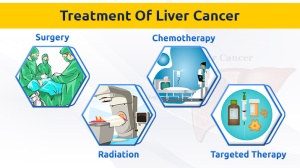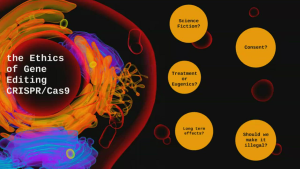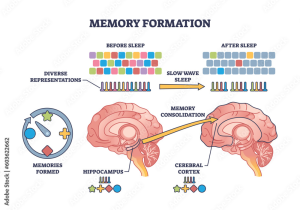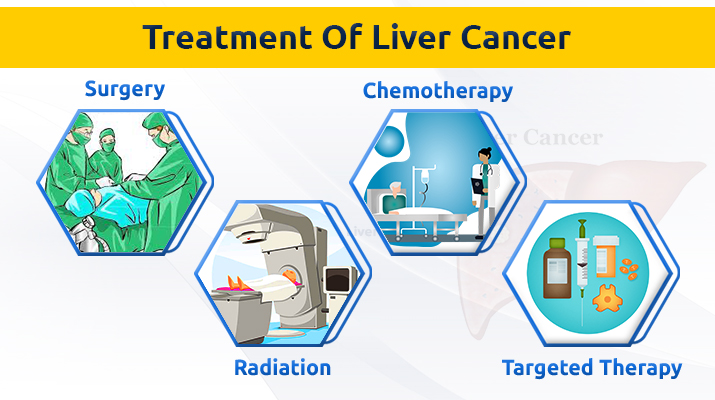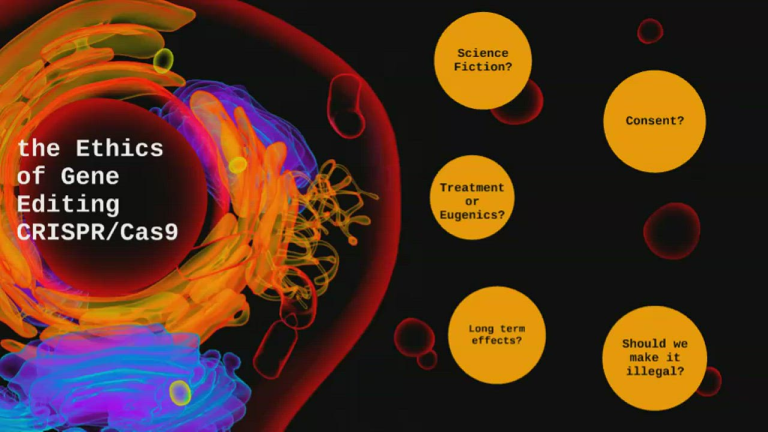Pediatric cancer prediction is evolving significantly, with technology paving the way for breakthroughs in early detection and treatment strategies. Recent advancements, particularly in AI in pediatric oncology, have shown promise in predicting the glioma recurrence risk more accurately than traditional methods. In a study conducted at Harvard, researchers developed an innovative AI tool that analyzes MRI scans in cancer patients over time, optimizing the prediction of cancer relapse. This exploration of temporal learning in medicine not only enhances our understanding of childhood brain tumors but also aims to alleviate the stress and burden of frequent imaging on young patients and their families. By leveraging advanced techniques, healthcare providers hope to tailor follow-up care to the individual risk profiles of pediatric patients, improving outcomes and quality of life for those affected by cancer.
The realm of predicting childhood cancers is undergoing transformative change, particularly with the integration of cutting-edge technologies that enhance treatment and monitoring. Terms like pediatric oncology and advanced imaging techniques are now more prevalent as researchers focus on understanding the intricacies of cancer behaviors in children. The ability to assess the risk of gliomas, a type of brain tumor, has been revolutionized through innovative tools that analyze patient data over a timeline, highlighting the importance of continual observation. By embracing concepts like temporal learning, practitioners can now anticipate cancer relapse with greater confidence, tailoring interventions to meet the unique needs of each child. As we continue to explore these advancements, the hope remains that we will achieve more personalized and effective approaches to managing pediatric cancer.
Understanding Pediatric Cancer Recurrence Risk
Pediatric cancer recurrence risk is a critical area of focus for oncologists and caregivers, particularly when dealing with brain tumors like gliomas. Traditional methods of predicting relapse rely heavily on individual MRI scans, which may not provide a comprehensive picture of a patient’s condition. This creates significant challenges in accurately determining which children are at a higher risk of recurrence. Incorporating advancements in artificial intelligence (AI) and temporal learning can address these shortcomings by analyzing multiple MRIs over time, thereby enhancing the predictive capabilities of these assessments.
The recent study conducted by researchers at Mass General Brigham serves as a pioneering step in this field by showcasing how an AI tool can improve the accuracy of predicting pediatric cancer recurrence risk. By employing a temporal learning strategy, the AI was able to synthesize changes observed in a series of MRI scans taken during follow-up care, providing a more nuanced insight into the patient’s health trajectory. This innovative approach not only helps in identifying patients who may need intensive monitoring but also assists in making informed decisions regarding treatment options.
The Role of AI in Pediatric Oncology
The integration of AI technology in pediatric oncology represents a significant leap forward in the realm of cancer care. With the ability to process vast amounts of imaging data, AI algorithms are transforming how oncologists approach diagnosis and treatment planning. In the context of gliomas, AI tools like the one developed in the recent study have shown they can surpass traditional predictive methods, allowing for more nuanced analyses of brain scans. This not only aids in better risk assessment but also in tailoring specific treatment strategies to individual patients, an approach that is particularly important in pediatric care.
Moreover, AI’s role in pediatric oncology extends beyond mere prediction; it potentially alleviates the psychological burden on young patients undergoing frequent MRI scans. By improving the accuracy of predictions regarding glioma recurrence risk, AI can help reduce unnecessary follow-up imaging for those identified as low-risk, thereby limiting stress and anxiety for both children and their families. As AI continues to demonstrate its value in this field, it paves the way for a future where personalized medicine becomes the norm, resulting in better outcomes for pediatric cancer patients.
The Importance of MRI Scans in Cancer Management for Children and Adolescents
MRI scans are invaluable tools in the arsenal against pediatric cancer, especially for monitoring brain tumors such as gliomas. Regular imaging plays a crucial role in assessing post-treatment recovery and detecting potential relapses early. In pediatric oncology, where timely interventions can significantly impact prognosis, MRI scans allow oncologists to visualize tumor changes and plan appropriate follow-up strategies. However, the interpretation of these images can be complex and subjective, often leading to uncertainties in the management of young patients. Therefore, advancements in AI technologies for interpreting MRI data are particularly welcome.
Incorporating AI into the analysis of MRI scans has the potential to enhance diagnostic accuracy and inform decision-making in pediatric oncology. Traditional methods often involve subjective reading by radiologists, which may lead to variability in assessments. With AI-driven predictive models, clinicians can gain deeper insights by evaluating the temporal sequences of images over time. This progress not only equips healthcare providers with better tools to predict cancer relapse but can also contribute to developing individualized treatment plans that address the specific needs of pediatric patients, thereby improving overall care and outcomes.
Leveraging Temporal Learning in Pediatric Cancer Treatment
Temporal learning represents a revolutionary approach in medical imaging, particularly within pediatric oncology, where patients require long-term follow-up. Unlike conventional predictive models that analyze single images, temporal learning utilizes a sequence of MRI scans from a patient’s treatment journey, fostering a more dynamic understanding of tumor behavior and recurrence patterns. By training AI models on these temporal sequences, researchers can develop algorithms that recognize subtle but significant changes in tumor size or characteristics, which are critical indicators of potential relapse.
This methodology not only improves prediction accuracy but also empowers clinicians to make data-driven decisions regarding the frequency of imaging and subsequent therapies. For instance, if a patient is identified as being at a lower risk of glioma recurrence, it allows for a reduced imaging schedule, thus minimizing the emotional and physical burden on children and their families. Conversely, insights gained can prompt proactive treatment options for those considered at high risk. As temporal learning continues to evolve, it holds the promise of transforming long-term management strategies in pediatric oncology.
Predicting Cancer Relapse with AI Technology
Predicting cancer relapse is a paramount concern in the management of pediatric cancer patients, particularly in the realm of brain tumors like gliomas. New AI technologies, especially those utilizing temporal learning, can provide enhanced capabilities to predict recurrence more accurately than traditional methods. By analyzing multiple MRI scans that showcase a patient’s health over time, the AI can deliver more nuanced predictions that prioritize individual patient conditions. This capability has transformative implications for treatment decisions and follow-up care.
Utilizing AI for predicting cancer relapse fundamentally changes how pediatric oncologists tailor their approaches. The ability to identify which patients may benefit from more aggressive monitoring or alternative therapies allows clinicians to optimize care pathways. The success demonstrated in the recent study reveals that AI’s predictive prowess can significantly improve clinical outcomes. As trials move forward, integrating these advanced predictive models into routine clinical practice may lead to a new standard in managing pediatric cancer, enabling early interventions that can drastically improve survival rates.
Clinical Applications of AI in Pediatric Oncology
The clinical applications of AI in pediatric oncology are becoming increasingly apparent as research continues to validate its efficacy in improving patient outcomes. In particular, the study from Mass General Brigham highlights the potential for AI tools to revolutionize how oncologists predict and manage glioma recurrence. The insights gained from historical imaging, coupled with advanced algorithms, equip healthcare providers with robust methodologies for determining the necessary pace and extent of follow-up care, which is especially vital in childhood cancers.
Moving forward, the implementation of AI in clinical practice could mean more personalized medicine, where treatment plans are devised based on precise predictions rather than generalized protocols. This can lead to significant improvements in how effectively clinicians monitor their young patients, minimizing unnecessary anxiety associated with regular imaging while ensuring that at-risk children receive the attention they need promptly. As the technology matures, ongoing validation across diverse clinical settings will be crucial in determining the best scheduling models informed by AI predictions.
Improving Pediatric Cancer Care through AI
The integration of AI technology into pediatric cancer care represents a critical advancement that has the potential to improve patient outcomes significantly. As the ongoing research on predicting glioma recurrence illustrates, AI can dramatically enhance the understanding of how cancer evolves within young patients. By analyzing multiple MRI scans and leveraging temporal learning, clinicians can better predict which children are at risk of relapse, allowing for targeted interventions that can mitigate the severity of recurrences.
Furthermore, the hope is that this enhanced predictive capability will transform the overall approach to pediatric cancer care. Enhanced risk assessments can lead to tailored imaging protocols, meaning patients could experience fewer and less frequent scans if deemed low-risk, while those at a higher risk could receive more intensive monitoring and preemptive treatments. This paradigm shift not only aims to reduce the emotional and physical toll of cancer management on families but strives to make a meaningful impact on survival rates and quality of life for children facing these challenging diagnoses.
Future Directions in Pediatric Cancer Research
As research into pediatric cancer prediction advances, the potential for AI technologies in oncology continues to expand. The promising results from recent studies emphasize the importance of ongoing exploration into how these tools can be utilized in various cancer types beyond gliomas. This signals a future where AI-driven predictions help shape not only treatment protocols but also the structure of clinical trials aimed at understanding pediatric cancer dynamics comprehensively.
The path forward will require collaborative efforts among researchers, healthcare institutions, and regulators to ensure the safe integration of AI into daily clinical practices. By establishing strong validation processes and emphasizing patient-centered approaches, the goal will be to harness the full power of AI in pediatric oncology. This could ultimately lead to significant breakthroughs in early detection, personalized treatment strategies, and improved quality of life for children battling cancer, solidifying AI’s place as an indispensable ally in the fight against pediatric cancer.
Frequently Asked Questions
How does AI in pediatric oncology improve pediatric cancer prediction?
AI in pediatric oncology leverages advanced machine learning algorithms to analyze historical data and imaging, such as MRI scans, to predict outcomes in pediatric cancer patients more accurately than traditional methods. By integrating temporal learning techniques, AI can recognize subtle changes over time in brain scans, leading to improved pediatric cancer prediction for conditions like gliomas.
What role does temporal learning in medicine play in predicting pediatric cancer recurrence?
Temporal learning in medicine enhances pediatric cancer prediction by allowing AI models to consider multiple sequential MRI scans taken during a patient’s recovery. This method enables the AI to identify patterns and changes over time, significantly improving the accuracy of predicting pediatric cancer recurrence, especially in cases of gliomas.
Can MRI scans in cancer help predict glioma recurrence risk in pediatric patients?
Yes, MRI scans in cancer are crucial for predicting glioma recurrence risk in pediatric patients. Studies have shown that when analyzed using AI tools, especially with temporal learning techniques, MRI scans can greatly enhance the accuracy of predictions regarding the likelihood of relapse in pediatric glioma cases.
What advancements have been made in predicting cancer relapse among pediatric patients?
Recent advancements include the development of AI tools that utilize temporal learning to predict cancer relapse in pediatric patients more reliably. Studies indicate that these AI models can achieve a prediction accuracy of 75-89% for glioma recurrence, representing a significant improvement over traditional single-scan approaches that were accurate only about 50% of the time.
How significant is the AI approach for predicting glioma recurrence risk in pediatric oncology?
The AI approach for predicting glioma recurrence risk in pediatric oncology is highly significant as it offers a more precise method to identify which patients are at higher risk of relapse. By analyzing multiple MRI scans over time rather than relying on single images, this method reduces unnecessary stress on patients and families while potentially allowing for preemptive treatment in high-risk cases.
| Key Point | Details |
|---|---|
| AI Tool for Prediction | An AI tool predicts relapse risk in pediatric cancer patients more accurately than traditional methods. |
| Study Overview | The study analyzed nearly 4,000 MRI scans from 715 pediatric patients to evaluate the AI’s performance. |
| Temporal Learning Technique | The AI utilizes temporal learning, analyzing multiple scans over time to increase prediction accuracy. |
| Accuracy Rates | The temporal learning model predicted recurrence with 75-89% accuracy, outperforming single image predictions at 50%. |
| Clinical Implications | Potential for improved monitoring strategies and targeted treatments based on AI predictions. |
Summary
Pediatric cancer prediction is being revolutionized by AI technology that offers earlier warnings of potential relapse. A recent study found that using an AI tool significantly enhances the accuracy of predicting the risk of recurrence in pediatric glioma patients compared to traditional methods. By leveraging advanced temporal learning techniques, the AI analyzes multiple MRI scans over time, thereby providing a more nuanced understanding of individual patient risks. This advancement opens the door to tailored treatment plans, potentially reduce unnecessary procedures, and improve the overall care for children battling cancer. As ongoing research continues to validate these findings, the future of pediatric cancer care looks increasingly promising, with AI leading the way.

